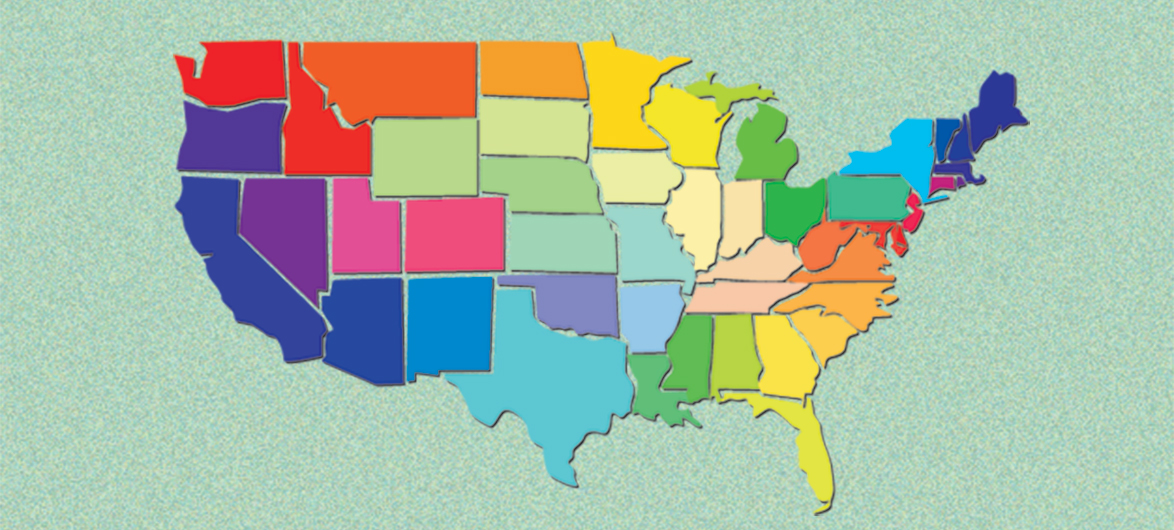This article was updated on 12/28/2018.
Across the nation, laws restricting employers from asking job candidates about criminal histories are on the rise. As of September 2017, more than 150 cities and counties and 29 states have adopted laws that limit what you can ask job applicants.
Known as “ban-the-box” legislation, the new rules are designed to give individuals with a criminal history a fair chance at employment. Removing the question ”Have you ever been convicted of a crime?” from job applications encourages employers to consider a candidate’s qualifications first, rather than rejecting someone outright because of a criminal past.
Yet, in most cases, the laws go beyond just requiring you to remove a check box from application forms. Understanding and complying with fair-chance hiring laws can be confusing, especially if they contradict or overlap with existing anti-discrimination laws. How do you know if you’re covered? Here’s an overview with some tips to help you comply.
Does It Apply to My Business?
If you’re in a major urban area, chances are high that ban-the-box laws apply to your business. More than two-thirds of the U.S. population — at least 226 million people — live where some form of ban-the-box or fair-chance policy applies.
In states or cities that have passed this legislation, you can’t inquire about an applicant’s criminal record until the job interview — or, in some cases, after a position has been offered to the applicant. You also may need to delay background checks until then.
These twenty states have ban-the-box laws that apply only to public employers:
- Arizona
- Colorado
- Delaware
- Georgia
- Indiana
- Kansas
- Kentucky
- Louisiana
- Maryland
- Michigan
- Missouri
- Nebraska
- Nevada
- New Mexico
- New York
- Ohio
- Oklahoma
- Pennsylvania
- Tennessee
- Utah
- Virginia
- Washington
- Wisconsin
However, these eleven states restrict both public and private sector employers from asking about criminal records on job applications:
- California
- Connecticut
- Hawaii
- Illinois
- Massachusetts
- Minnesota
- New Jersey
- Oregon
- Rhode Island
- South Carolina
- Vermont
- Washington
You also may be restricted from asking questions about certain types of convictions, non-conviction arrests or expunged records.
Even if your state isn’t on the list, you shouldn’t assume these laws don’t apply to you. Fifteen cities and counties have taken the lead in creating ban-the-box laws that extend to private employers. These include: Austin, Baltimore, Buffalo, Chicago, Columbia (MO), District of Columbia, Kansas City, Montgomery County (MD), New York City, Philadelphia, Portland (OR), Prince George’s County (MD), Rochester, San Francisco, Seattle, and Spokane. In addition, many other cities and counties have laws restricting when you can conduct a criminal background check. In most cases, you can only do a check after you’ve made a conditional offer of employment or have selected final candidates.
How to Comply with Ban-the-Box Laws
To be clear: You’re not required to hire someone with a criminal record. Ban-the-box legislation isn’t intended to force employers to hire someone with a criminal background over other qualified candidates, but rather to create a fairer decision-making process. It shifts the criminal history inquiry from the initial application stage until later in the hiring process, during an interview or after you extend a conditional job offer.
How can you be confident you’re in compliance? First, check your state and local laws. Then make sure you’re using an attorney-approved, state-specific job application. Next, modify your hiring procedures to delay any inquiry about criminal history until it’s legally allowed.
Get State-Specific Application Help
With the right tools, you can be certain you’re satisfying the latest ban-the-box laws when hiring. The Job Application Smart App automatically complies with your state’s requirements so you’re always up to date. And it helps protect you from avoidable and costly legal mistakes. Proper applications can be sent securely online to more candidates — eliminating handwritten forms and extending your recruiting reach, thereby creating a more efficient screening process.

- The first state to pass a ban-the box-law was Hawaii, removing the criminal history question for both public and private sector employers in 1998.
- Philadelphia was the first major city to ban the box for public and private employers in 2011.
- Certain industries and jobs are exempt from ban-the-box laws, such as positions in child care, health care, law enforcement and finance.
- 11 states and 15 cities and counties (including the District of Columbia) have adopted laws requiring private employers to ban the box and fairly consider applicants with criminal records.
- More than 150 cities and counties also have fair-chance hiring laws related to criminal records.
- In ban-the-box states, cities or counties, you cannot ask about criminal history on job applications (but may be able to do so later in the hiring process).
- You may need to delay criminal background checks until after you make a conditional job offer.
- You’re not required to hire an individual with a criminal record.

